
Developer: Paralune LLC
Publisher: nakana.io
Platform: Switch, PC, PS4, Xbox One
Tested on: Switch
Mythic Ocean – Review
Whenever nakana.io adds a new title to their library of Switch games, we know that we’re in for a treat. The publisher’s offerings never really fit the mold of conventional video games, but the story-driven indie titles that nakana.io brings to the party rarely disappoint. The latest offering is indie developer Paralune LLC’s Mythic Ocean, an open-world adventure title that is actually the studio’s debut game. What lurks beneath the depths of Mythic Ocean? Let’s find out.
Story
Although Mythic Ocean features an amazing narrative-driven experience that will linger with you long after you’ve completed the game for the first time, it’s quite difficult to explain the story because of two reasons. First of all, we’re going to avoid spoilers, because this is a game that really expects you to discover the story through exploration. Secondly, and perhaps even more importantly, is that the story is determined by the choices you make, and so your experience with Mythic Ocean might not play out the same way as ours did. That said, we can still explain the basic premise of Mythic Ocean, as that remains the same. Rest assured that we won’t be delving too deeply into Mythic Ocean’s lore in this review, as some things are simply best left to discover by yourself -including the identities of the gods.
The game starts with Elil the eel greeting you. You are unaware of who you are and why you are there, but Elil explains that you have a part to play in the creation of a new world. This is part of a cycle that has happened many times before and will happen many times more in the future. The ocean that you and Elil are swimming around in houses a veritable pantheon of gods, although none of them are aware of their divinity. It is up to you to seek out each of the gods and aid them in dealing with what is on their mind, so that one of them will be able to create the new world when the time is right. Armed with this new knowledge, you set out into the ocean to meet the next creator of the world.
Graphics
While Mythic Ocean might not boast the most impressive graphics out there, what’s present really works, and the result is one of the better-looking games on the Switch. Paralune LLC pushes the simplistic visuals to the next level through clever use of lighting and consistent aesthetics, creating a game that looks appealing and coherent. The game’s aesthetics are somewhat reminiscent of The Wind Waker HD. The game’s frame rate is buttery smooth as a result, and while things don’t appear photorealistic, what’s present here fits into the overall experience. Each environment and its inhabitants look distinct but things remain consistent stylistically, and even the otherworldly designs of some of the gods tie into the overall look of the game neatly.
Sound
Composer Darren Malley’s original soundtrack perfectly sets the mood, with its ethereal, almost religious-sounding soundscape. Each of the different areas of the ocean has its own distinct soundscape, from the festive music that brings the Kelp Forest to life to the almost complete silence that surrounds the underwater laboratory, which is only broken by whale sounds. The game features no voice acting, but this is one of those rare instances where the end result is actually better for it. It’s implied that communication in the game is done telepathically, and not hearing voice actors really helps with immersion here.
Gameplay
At its core, Mythic Ocean is an open-world exploration game, which has you swimming around various underwater territories as you interact with the inhabitants and seek pages of the book of creation. The ultimate goal is to set the creation of a new world in motion, but this is easier said than done, as you’ll need to seek out each of the gods that are living in the various parts of the ocean and deal with what they have on their mind before you’re able to achieve your lofty goal. Your available actions are fairly limited. You’re able to swim around the ocean freely, of course, but you can also use your sonar to sniff out creatures you can interact with and you can use a teleportation device to fast travel to any part of the ocean, provided you’ve talked to the god that inhabits that area.
There isn’t a lot of classic action going on in the game, resulting in a fairly laid-back and relaxing experience, but there are still more traditional gameplay elements present than in most other titles published by nakana.io. The gods will present you with situations that will require you to make choices. These situations, known as fables, have both an effect on the ultimate outcome of the story as well as on how the gods perceive you. During conversations with the gods, they’ll glow red or green depending on how you answer their questions. Interacting with them will also ultimately decide who will create the new world, although you can somewhat manipulate this by using pages from the book of creation to have Elil craft a crown. The crown will increase the chances of a chosen god to create the world, though it’s not a certainty.
Speaking of the book of creation, its pages are spread out over the ocean, and one of the game’s subgoals is to collect all of these. As you are swimming around the ocean, you’ll encounter glowing orbs. Move close enough to one of these, and it’ll open up a portal into a library, where you’ll then collect the page. You can use these to have Elil craft the aforementioned crown, which requires at least 10 pages, though having more pages increases the crown’s effect. An alternative use for the pages is to give them to one of the gods, Gnosis. In exchange for pages, Gnosis will reveal details about your true identity, though if you want to learn the full truth, you’ll have to find every page in the game, and hand all of them over to Gnosis. Before handing over the pages, though, you’ll be able to read them and discover more about the backstory of the game world, which is surprisingly deep and dark.
Then there are the sea critters that inhabit the underwater world. Most of these can be interacted with, and some of them offer small sidequests of their own. You can use your sonar to see which creatures you are able to talk to, and critters you haven’t talked to -or that have new information to share- will be shown more prominent on your sonar. Your teleportation device will also indicate how many pages there are left to find in an area and how many creatures you haven’t interacted with yet, meaning you’ll know when you’ve cleared an area completely.
Helping out critters will occasionally increase your standing with the gods, and it will sometimes unlock new illustrations, which are typically collected by completing side quests given by the gods themselves. These side quests are referred to as fables by the game. It’s nice to see that there is a slew of collectibles and sidequests and that these actually can affect the outcome of the story. Given that a happy ending isn’t guaranteed, this really helps sell the idea that your choices matter. It also means that Mythic Ocean is highly replayable, as there are a variety of different endings depending on how you interact with the gods.
Of course, we can’t talk about Mythic Ocean’s gameplay without addressing one very important question: how is it as a game? This is where Mythic Ocean -and by extension, every other nakana.io title- is going to be divisive. There isn’t a clearly defined way to ‘”win” Mythic Ocean, and even the quests involve little more than talking to character A, relaying the info to character B, and then returning to character A in order to make the story move forward. More than once in the game we stumbled upon an event that we expected would require us to perform some sort of action, only to have said action performed by another character offscreen. While it is an interactive experience, this isn’t a true video game by conventional standards, and anyone looking for traditional gameplay will end up disappointed. In this regard, Mythic Ocean is more of a tech demo than an actual game, but if we’re looking at the title as an interactive experience, or even as a piece of art, then it’s nothing short of a masterpiece.
Conclusion
If it wasn’t clear yet: we were really impressed with Mythic Ocean, despite its gameplay shortcomings. It’s easily the best title nakana.io has to offer on the Switch, and it’s mind-blowing to realize that this is the first game produced by Paralune LLC. It’s not going to be for everyone, but none of nakana.io’s titles are. If you liked any of their earlier offerings, or if you’re intrigued by what Mythic Ocean has to offer, we highly recommend you take the plunge, as this is one experience that will linger with you for quite some time.
Mythic Ocean - Review,1 Comment
Leave a Reply
You must be logged in to post a comment.

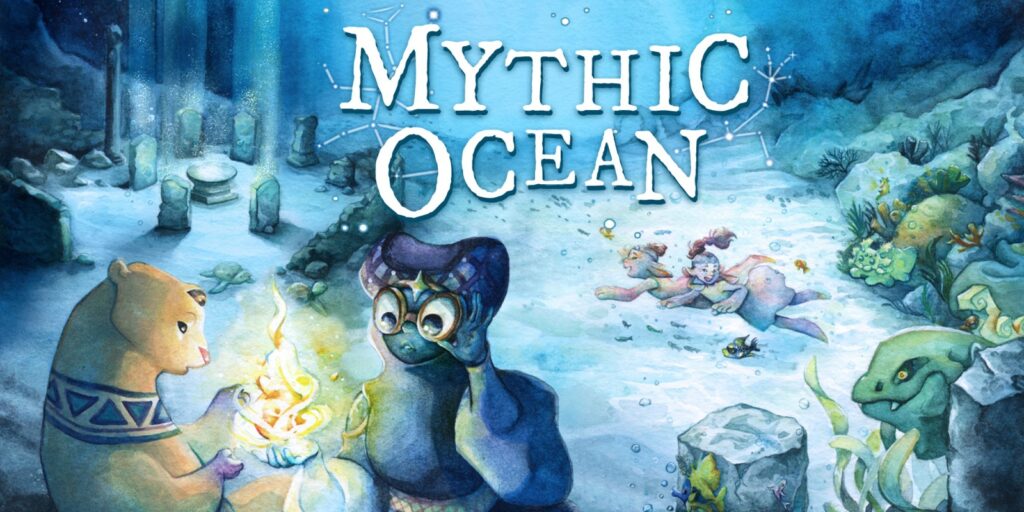
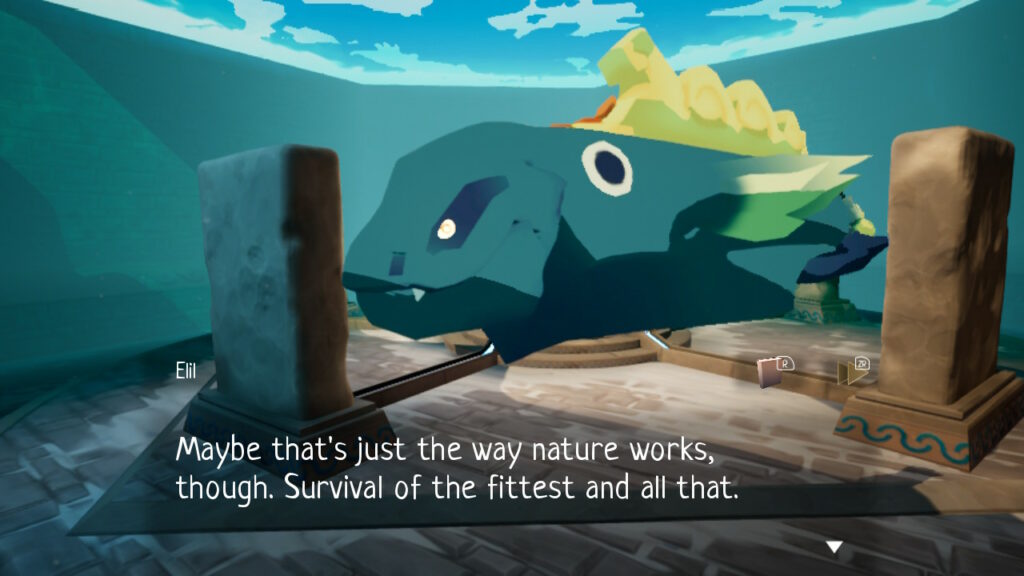
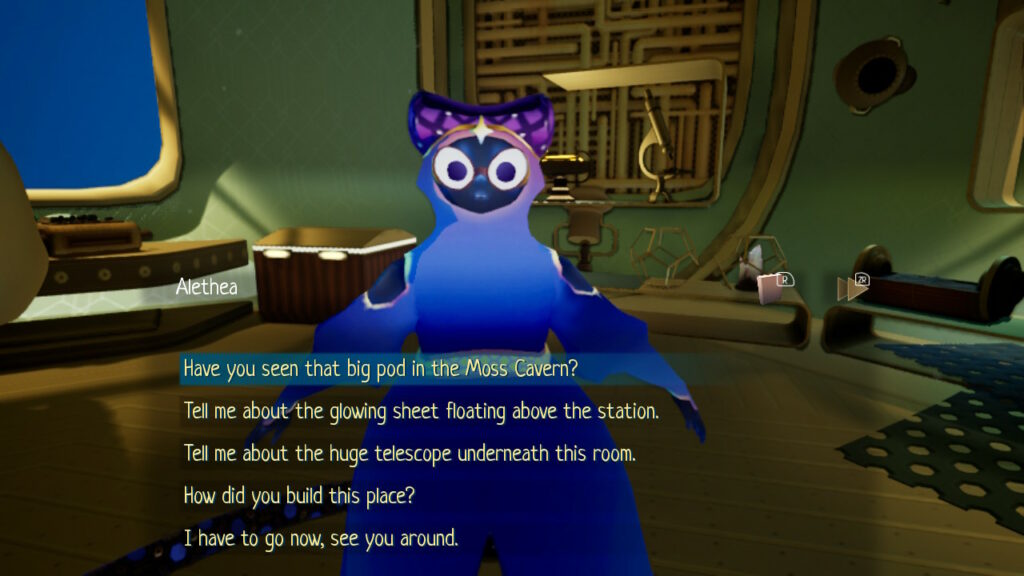
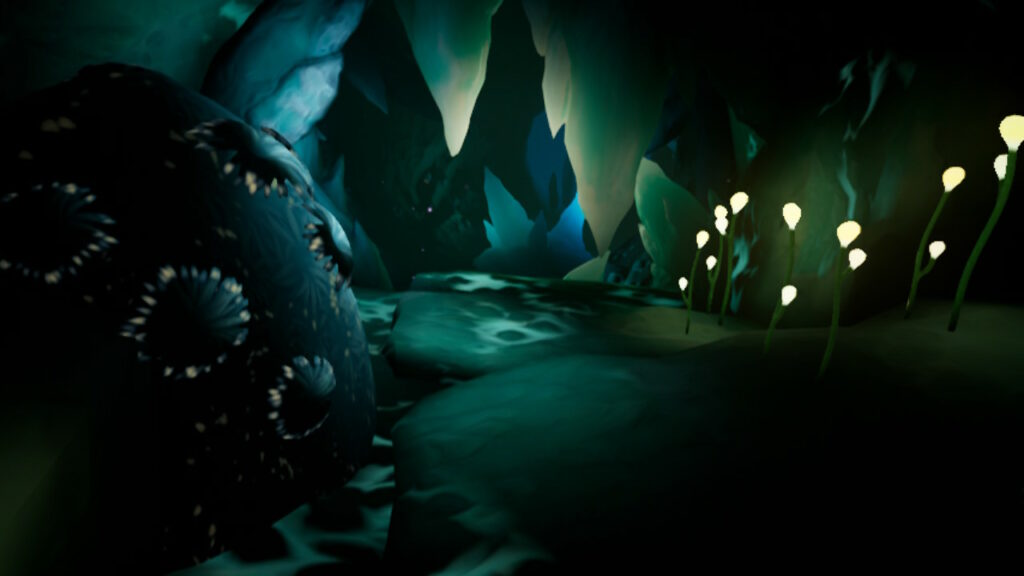
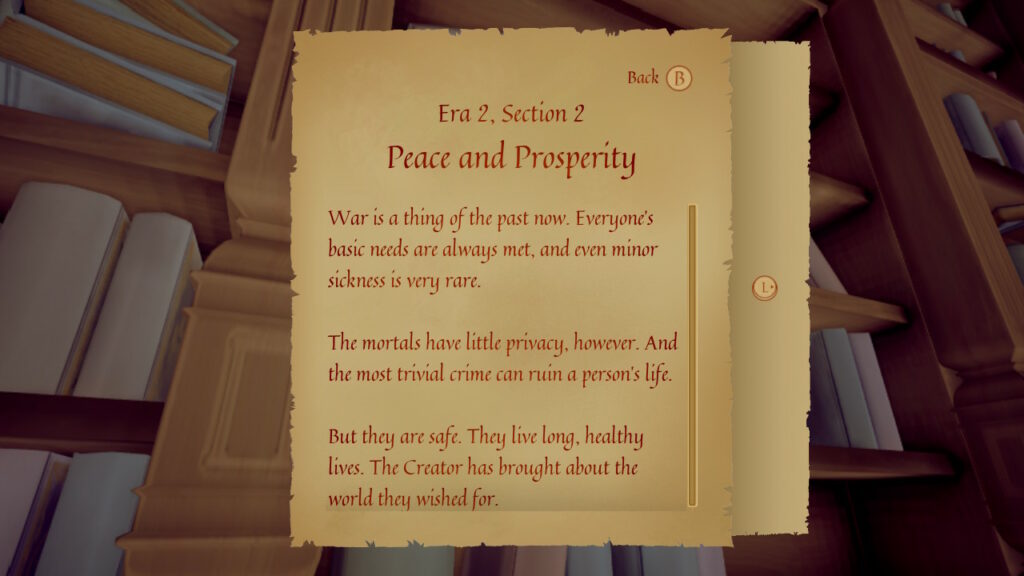
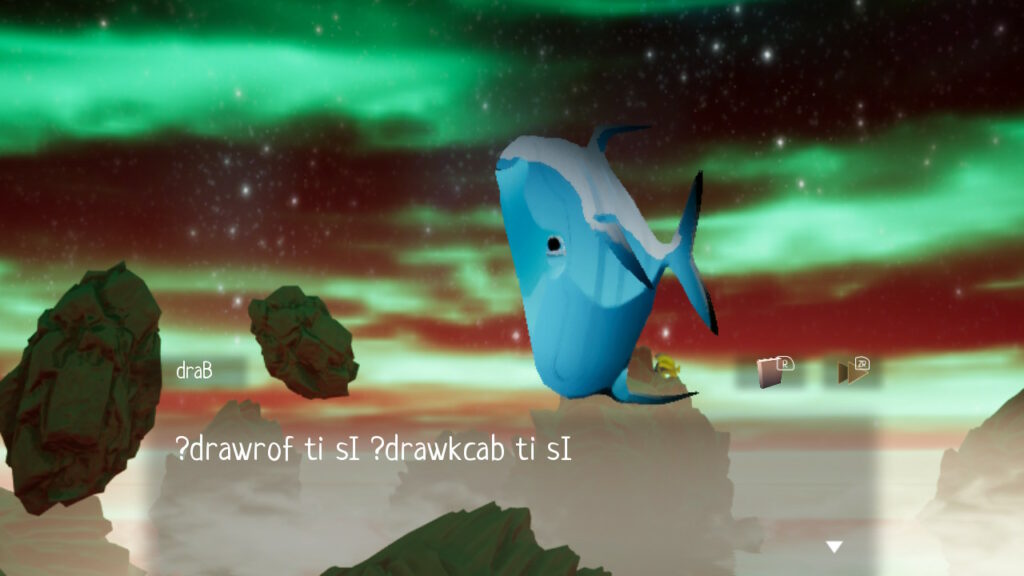




[…] notions of gaming, instead resembling an interactive piece of art. Good examples of this include Mythic Ocean and Endling. Season: A Letter to the Future, the subject of today’s review, certainly has […]